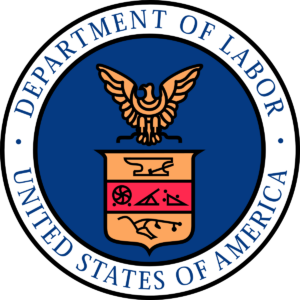 From the Pros at the HR Support Center
From the Pros at the HR Support Center
The Department of Labor has announced the new minimum salary for certain exempt white-collar employees. The final rule is very close to the proposed rule we reported on in March. The new minimums will take effect January 1, 2020.
Exempt Executive, Administrative, Professional and Computer Employees (EAP)
Salaried exempt EAP employees must be paid at least $684 per week on a salary basis (an increase from the current minimum of $455 per week). This is the equivalent of $35,568 per year.
Up to 10% of this minimum may come from non-discretionary bonuses, incentive payments, and commissions (collectively, “incentive pay”), so long as these payments are received on at least an annual basis. If an employee does not earn enough incentive pay to meet the minimum by the end of the year, the employer has two options: pay the difference with a “catch-up” payment within one pay period after the end of the 52-week year or retroactively remove the exemption and pay the employee for any overtime worked during that same year.
Teachers, practicing lawyers, practicing doctors, and outside salespeople are exempt from these minimums under federal law, though may be subject to state minimums.
Exempt Highly Compensated Employees (HCE)
The HCE exemption is intended for employees who don’t quite qualify for the EAP exemptions due to their job duties, but who happen to be paid extremely well. This exemption is used much less commonly than the others and most exempt employees will fall under the EAP exemptions.
Employees classified as exempt under the HCE exemption must make at least $107,432 per year. Of that amount, at least $684 per week must be paid on a salary or fee basis, with no reduction for future incentive pay. The remainder of their income, however—nearly 67% if they make $107,432—may come from incentive pay. If the employee does not earn enough in incentive pay to meet the minimum by the end of the year, the employer has the same two options as with EAP employees. They can make a catch-up payment (in this case within one month) or retroactively remove the exemption and pay the employee for any overtime worked during the previous year.
State Law
California and New York (and soon Washington) have laws in place that make the minimum salary for exempt employees higher than the new federal thresholds. Since employers must follow the law that is most beneficial to employees, the new federal minimums would not affect employers in these states.
What Now?
Employers will need to evaluate anyone who they currently classify as exempt from overtime and pay less than $684 per week or $35,568 per year. Once these employees are identified, employers will need to choose between giving them a raise to meet the new minimum to maintain the exemption or reclassifying them as a non-exempt and paying overtime.
Maine employers are reminded that currently in Maine the minimum exempt salary must exceed $634.62/week or $33,000 annually.
For More Information
Do you want to receive more helpful articles like this? The KMA HR Support Center provides regular articles and updates as well as sample HR forms, employment law information and more, including additional resources for this overtime rule change.
Contact us today for a free seven-day trial at info@kmahr.com.
